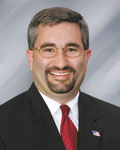July 29, 2013
Valuing Non – Cash Gifts Made During Your Lifetime
 By Curt Ford
By Curt Ford
Nash Nash Bean & Ford
For taxpayers who have a moderate to large estates, one estate planning tactic that is often used is to make gifts during the taxpayer’s lifetime in order to reduce the value of the estate at the time of death. Making lifetime gifts also allows the person making the gift to watch the recipient enjoying the gift. If you elect to make significant lifetime gifts, however, be sure that you ascertain a value for the gift as of the date the asset was gifted.
All gifts made during your lifetime are potentially subject to estate and gift taxes. Gifts up to $14,000 (as of 2013) made to a single beneficiary are exempted from gift taxes pursuant to the yearly gift tax exemption. In addition, gifts up to $5 million (adjusted yearly for inflation) that are made over your lifetime are excluded from gift and estate taxes. The key to minimizing your gift tax exposure is to gift the right asset at the right time. To do this, you need an accurate value for the asset.
Some non-cash assets, such as stocks or bonds, are easy to value. Many others though are not so easy to value. An unusual collection, for example, may be difficult to value, as can a piece of artwork or a family heirloom. For this reason, finding the right independent appraiser is critical. Take your time and speak to an attorney experienced in estate planning if you are concerned about providing an accurate value for a gift, as you do not want the IRS to challenge the value you claim.
Nash Nash Bean & Ford are members of the American Academy of Estate Planning Attorneys and the National Academy of Elder Law Attorneys. To receive a copy of our most recent newsletter “Your Estate Matters” or for a free consultation on Estate or Long Term Care Planning, call 800-644-5345, email info@nashbeanford.com or visit our website at www.nashbeanford.com, where you may also link to our blog and Facebook page.
The firm devotes its practice primarily in the areas of estate, business and tax planning and related areas of the law, as well as elder law and trust administration and probate. We offer guidance and advice to our clients in every area of estate planning.
Tags: Accurate Value, American Academy Of Estate Planning Attorneys, Bean Ford, Beneficiary, Cash Assets, Cash Gifts, Elder Law Attorneys, Estate Planning Attorneys, Family Heirloom, Free Consultation, Gift Tax Exemption, Gift Taxes, Independent Appraiser, Irs, Lifetime Gifts, Nash, National Academy Of Elder Law Attorneys, Right Time, Tax Exposure, Time Of Death
Trackback URL: https://www.50pluslife.com/2013/07/29/valuing-non-cash-gifts-made-during-your-lifetime/trackback/


